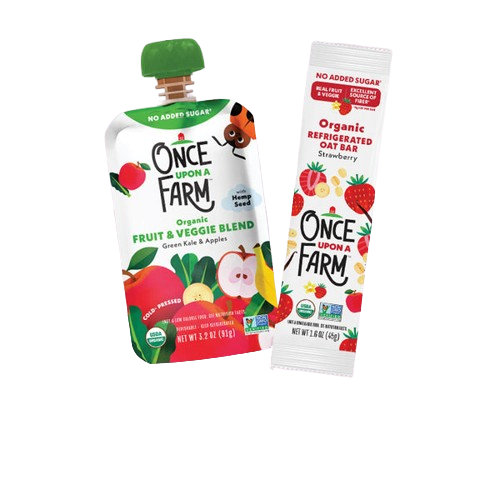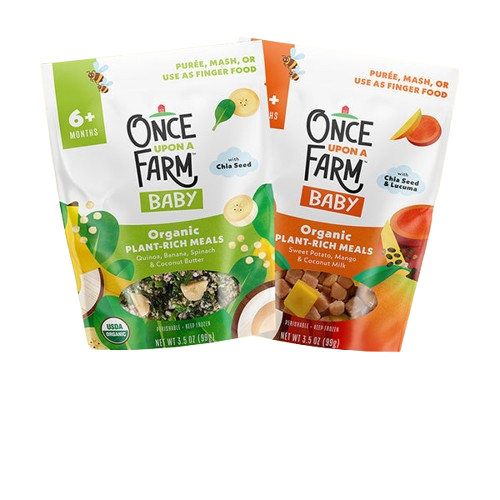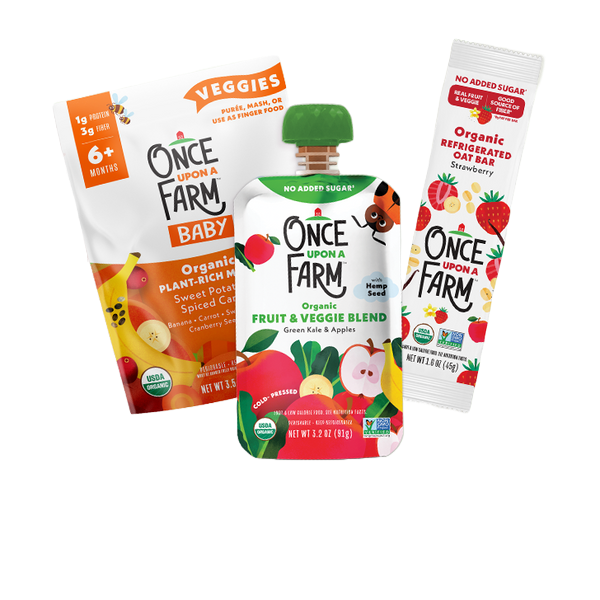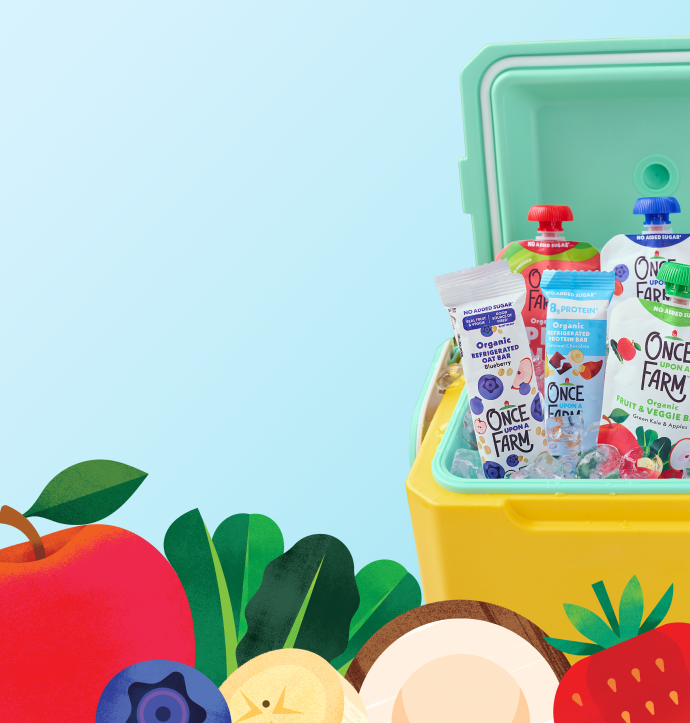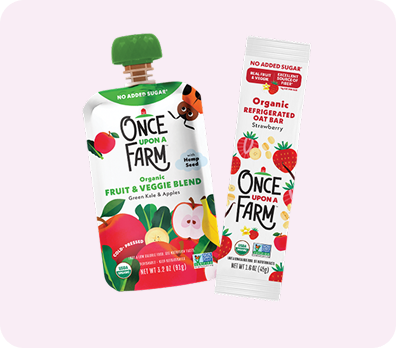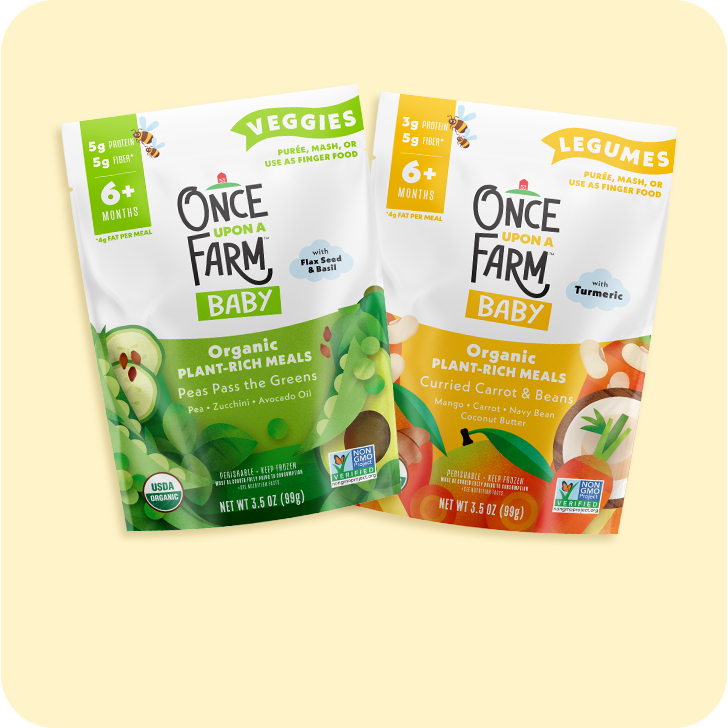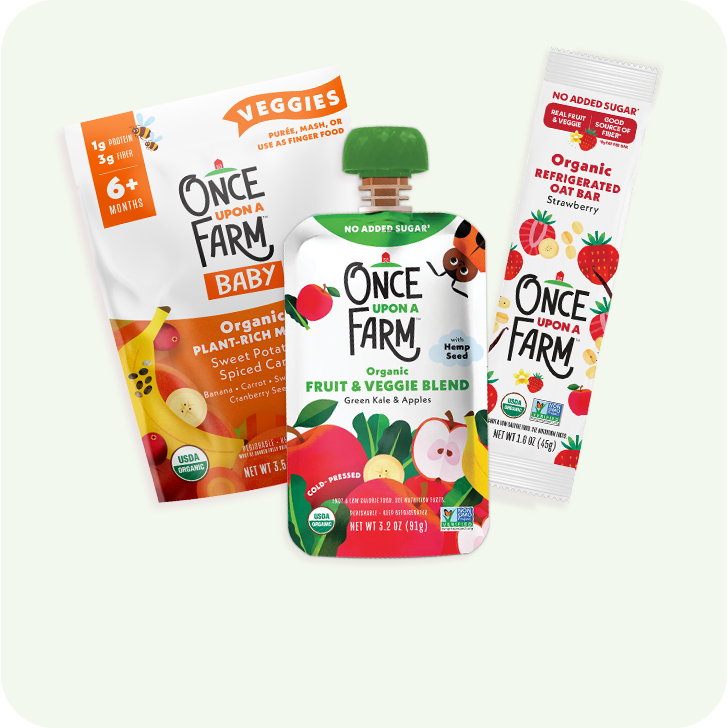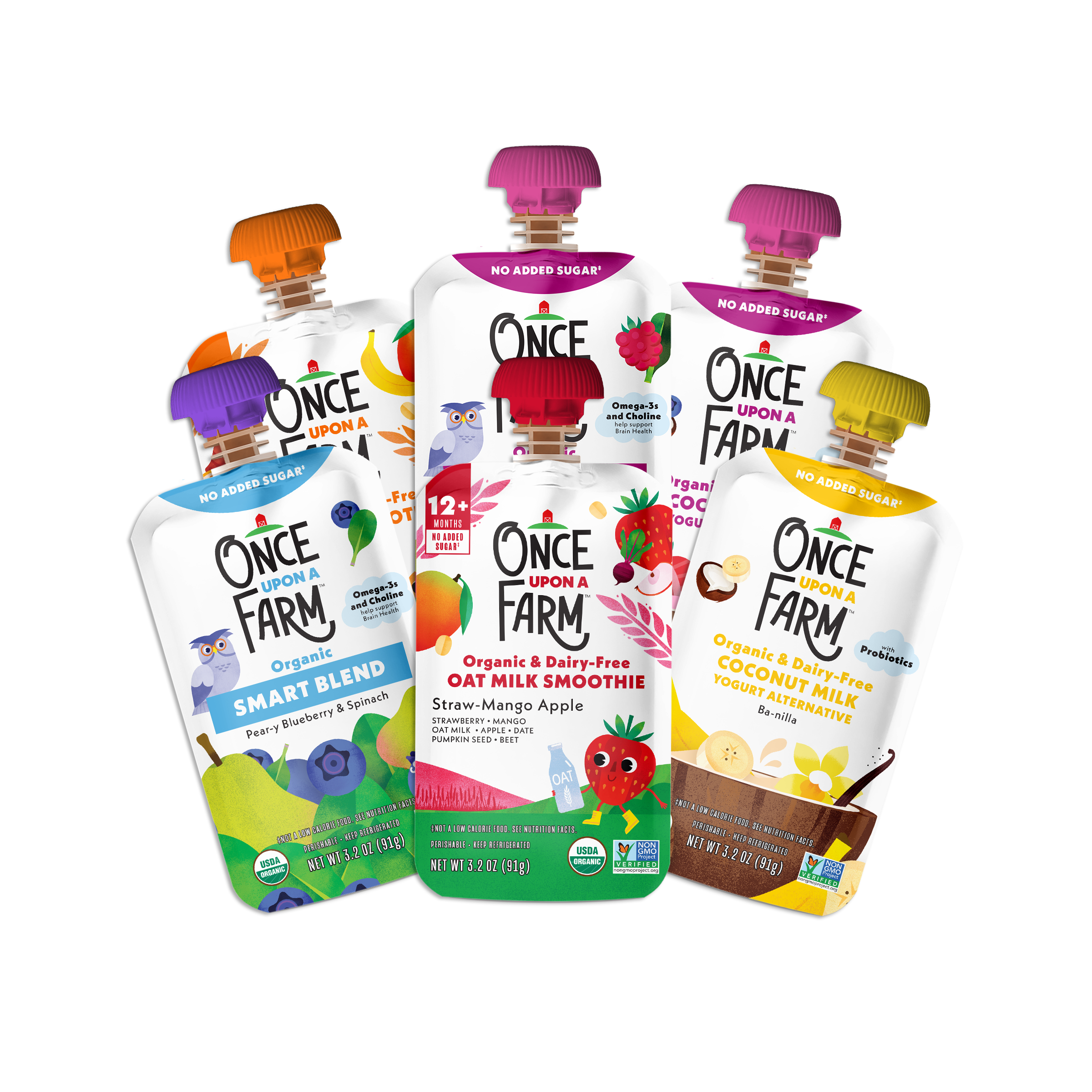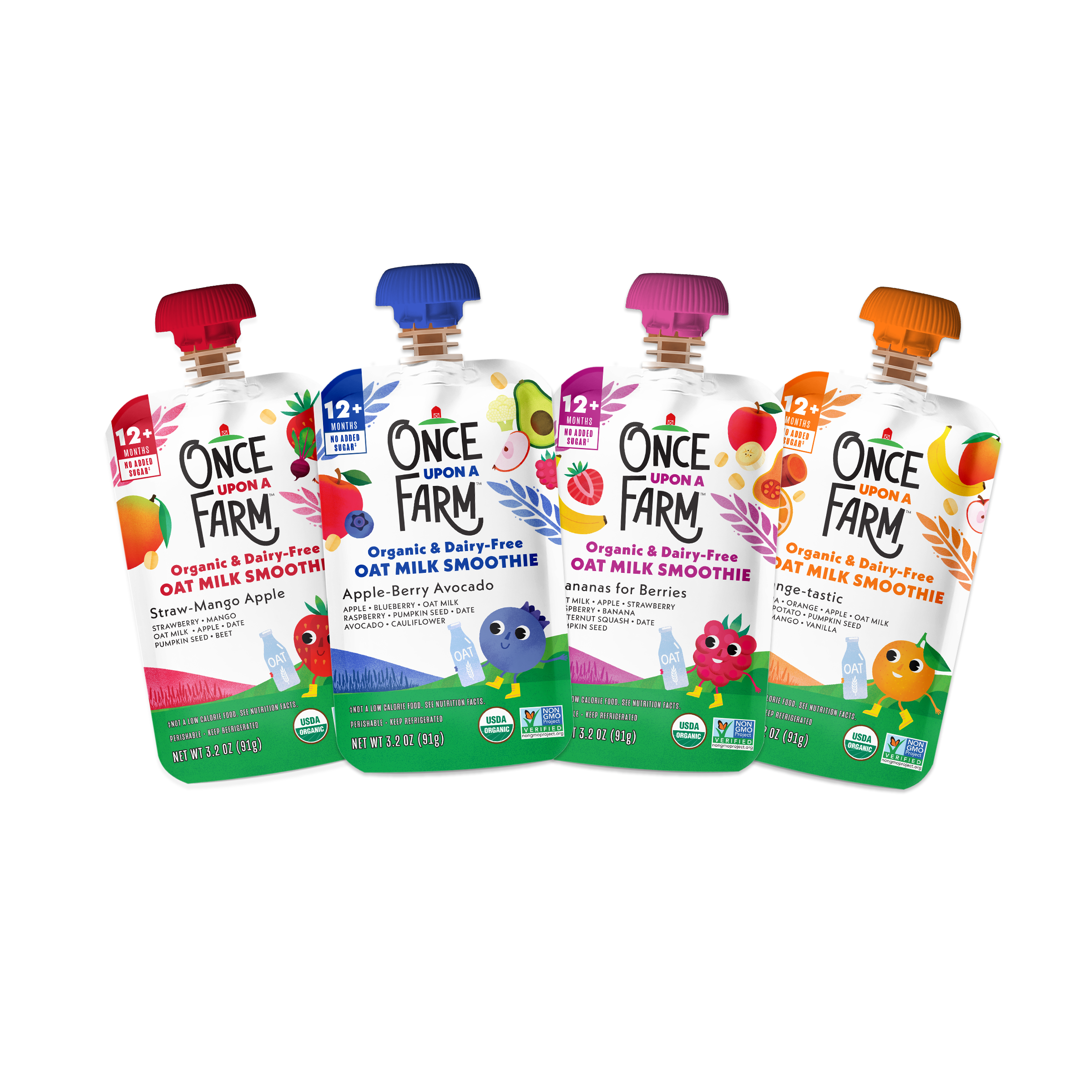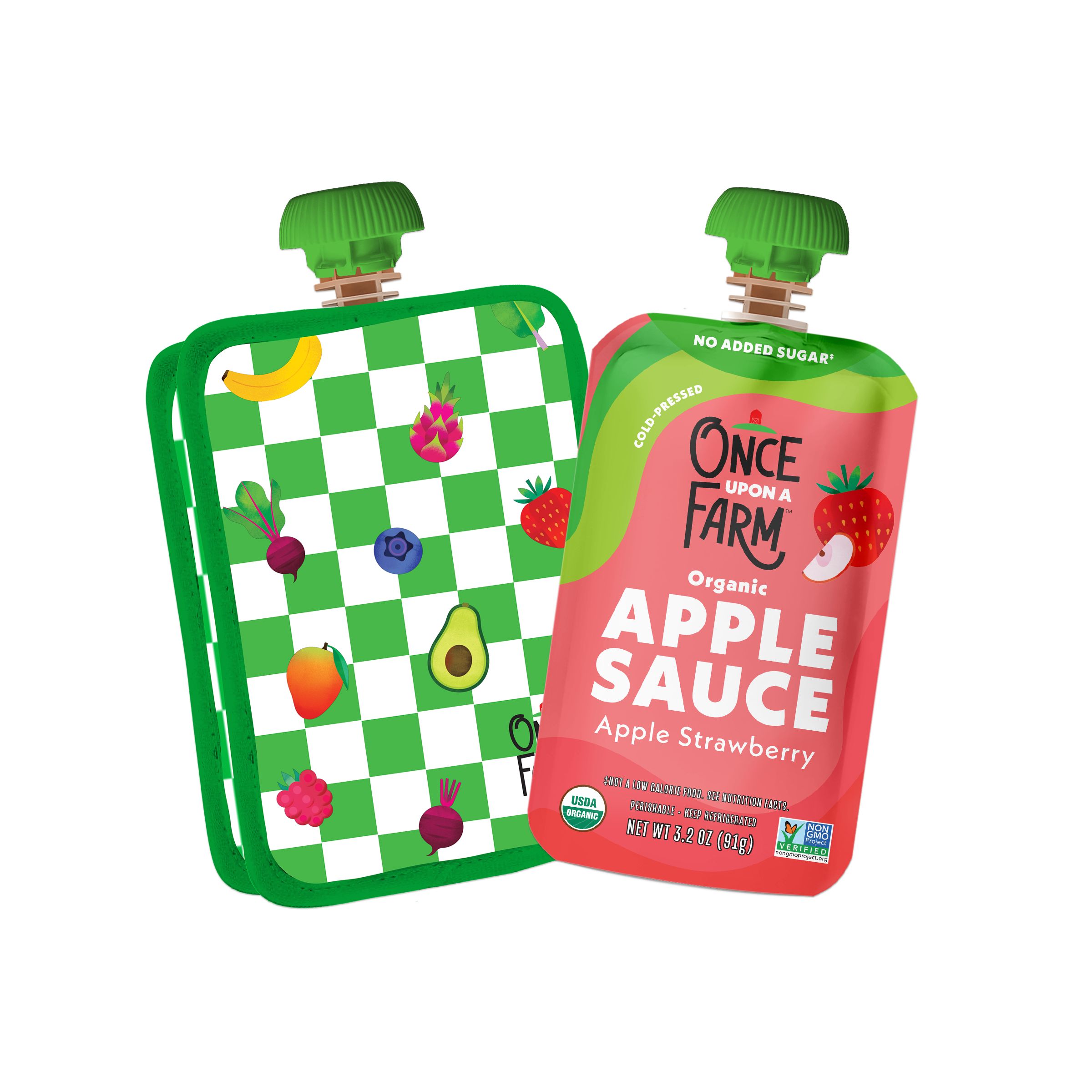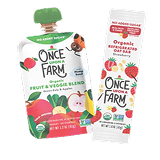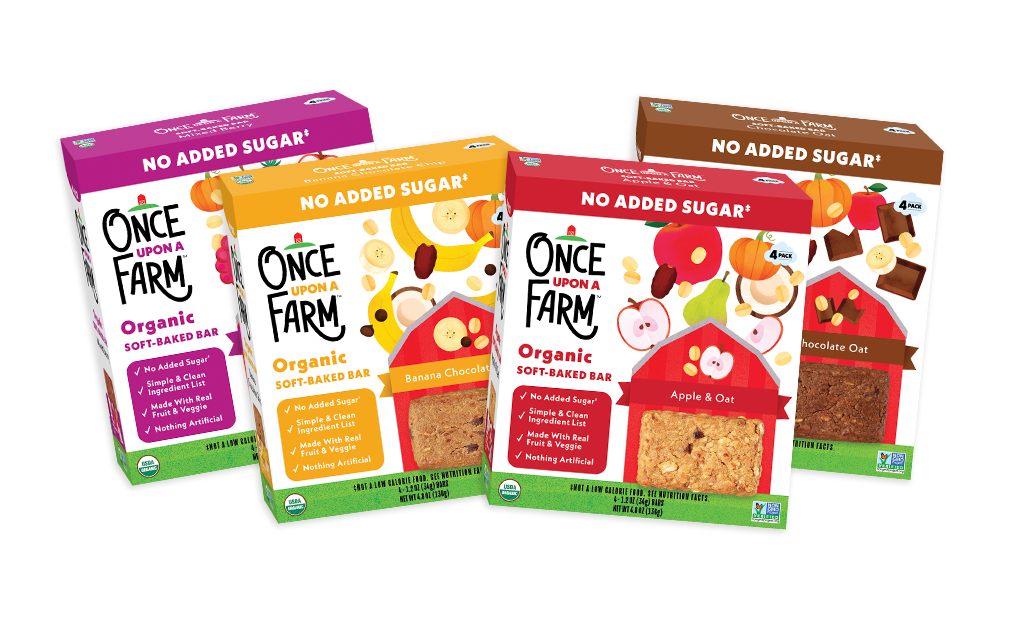Note: This blog is not medical advice and is for informational purposes only. For any specific feeding recommendations or questions regarding the consumption of probiotics, please refer to your child’s pediatrician or healthcare provider.
Let’s talk about probiotics. They naturally occur in fermented foods like yogurt, miso, kimchi, and cottage cheese. And they’re popping up in other products and supplements more than ever. Whether you’re actively seeking them out or not, chances are, you’re probably consuming some probiotics in your regular diet.
But what do probiotics actually do for us? And does your baby or child need them? We turned to the experts to help us break down the value of probiotics—and what you should know about giving them to your little ones—in an easily digestible (pun intended 😉) way.
1. First: a quick overview of the gut microbiome.
“The microbiome is the collection of healthy microbes that live within our GI tract,” says Ajay Gulati, MD, a professor and pediatric gastroenterologist at the University of North Carolina at Chapel Hill.
It helps us digest nutrients, form the barrier of the intestines, and regulate our immune system. The GI tract (aka the gut) contains 10 trillion bacteria—both pro-inflammatory and anti-inflammatory—which balance each other out and keep the immune system in check.
2. Bacteria aren't necessarily “good” or “bad.”
It’s easy to reduce anti-inflammatory and pro-inflammatory to “good” and “bad” bacteria, respectively, but it’s not that simple. Pro-inflammatory bacteria serve an important purpose! This type of bacteria “stimulates immune cells to be more aggressive to dangerous invaders,” says Dr. Gulati. AKA it helps protect us against germs.
Oh, and those immune cells the bacteria are communicating with? They’re right there in the gut, too!
3. Your immune system is built in the gut.
Why does this balance of bacteria in the gut have such a profound effect on the immune system? Well, the immune system just so happens to have its headquarters in the gut. “[The gut is] the largest immune organ in the body,” says Dr. Gulati, who adds that “about 25% of our immune cells live within the gut.”
When the gut microbiome is in check, these immune cells can exist in harmony, Dr. Gulati notes. But when the balance is disrupted, that’s when “we can become more susceptible to infections, allergic responses, and auto-immune diseases,” he says.
4. The gut microbiome is formed at birth and developed throughout childhood.
Much of the microbiome is established from an early age—starting from birth. Dr. Gulati notes that the mother’s vaginal microbiota, mother’s skin, and surrounding hospital environment can all contribute to the development of the baby’s microbiome.
Throughout infancy and childhood, the biggest driving forces behind development of the microbiome are nutrition and environmental factors. “There are no shortcuts to developing a strong immune system in babies/children,” says Dr. Gulati, who notes that breastfeeding is one effective way to build a healthy microbiome when possible. Your child’s pediatrician can help recommend other ways to support microbiome development as well.
And because much of the microbiome is established during infancy and childhood (and it’s harder to change it once we reach adulthood), it’s important to instill healthy habits from an early age.
5. The best way to support the gut & immune system? Establish healthy food and lifestyle habits early on.
Dr. Gulati shares that setting ourselves up for success in adulthood starts with establishing healthy habits early on in life. “As children get older, helping them establish a non-sedentary lifestyle with healthy eating habits is essential,” he says. “Diets low in processed foods, refined sugars, and red meats but high in fiber, fruits, vegetables, nuts, and fish may support a healthier microbiome.”
A nutrient-dense, varied diet with plenty of whole foods is the favorite way to support a strong immune system for pediatric registered dietitian Krystyn Parks, MS, RD, IBCLC. “A diet rich in whole grains, fruits, vegetables, and pulses [the seeds of legumes like beans, lentils, peas] will provide prebiotics for gut health, which has been linked to immune health, as well as provide a wide variety of vitamins, minerals, and phytonutrients,” she says.
“Adding in probiotic-containing foods furthers the variety.” Parks also recommends prebiotic foods, which can help “feed” the microbiome. “These are fibers that our bodies can't digest, but the bacteria can,” she explains. “They are found in pulses, fruits, vegetables, and whole grains.”
6. Probiotics can also help support the gut microbiome.
Probiotics—which Dr. Gulati says can be either bacteria or yeasts—are said to have a positive impact on the gut microbiome by helping maintain the balance of pro- and anti-inflammatory bacteria. “In theory, probiotics may be helpful by stopping harmful bacteria from setting up shop in the gut,” he says. “They may also help build up the mucus barrier of the intestine, block toxin production by dangerous bacteria, and promote the growth of microbes that are good for our health.”
While fermented foods like sourdough bread and kimchi naturally contain probiotics, “most of the bacteria in these foods is killed by our stomach,” adds Parks, “so adding in extra bacteria increases the odds that some will make it to the intestine, where they can grow.”
7. A few rules of thumb for giving babies and children probiotics.
We asked the experts for their thoughts on using probiotics to support our children’s immune systems. Here’s what they recommended:
- “Not all probiotics are the same,” says Dr. Gulati. “Always check the label to see what is included in the product you are considering.” When in doubt, consult with your child’s pediatrician.
- “Beware of extra ingredients,” says Dr. Gulati. “Many probiotic formulations have extra ingredients that have not been studied well in babies and infants. Be aware of extra ingredients that may not be beneficial for [your] child or may even be harmful.”
- Choose carefully, says Parks, noting, “any supplement that a parent purchases should be third-party verified as well.”
It’s important to note that there’s a difference between consuming probiotic-rich foods/functional products and taking a probiotic supplement, the latter of which will have much higher doses than what you’d find naturally occurring in or added to foods. That being said, be sure to check with your child’s pediatrician before adding a probiotic supplement into your child’s diet or if you have any specific questions about fermented foods/foods with added probiotics.
8. Once Upon a Farm thoughtfully includes probiotics in certain blends.
Recognizing the value of probiotics, we created Immunity Blends, offering a delicious way for kids to consume probiotics.
“[These Blends] are a combination of my own experience with probiotics with my family,” says Once Upon a Farm Co-founder Cassandra Curtis. "We took these learnings and transformed them into nutritious and delicious recipes that kids love." In addition to the benefits of probiotics, adds Curtis, “[our fresh blends] offer the added benefits of the bioavailability of nutrients that the whole food ingredients provide.”

